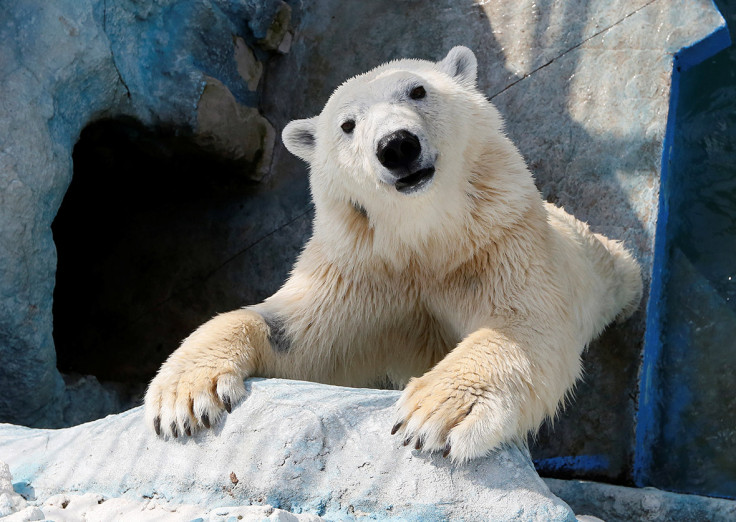Half-paralysed and starving polar bear found with gunshot wounds in Russia
A study in 2016 claimed that the polar bear population is set to decline by 2050.
A half-paralysed polar bear with several gunshot wounds to its body was found lying in a ditch in Russia. The malnourished and dehydrated bear was found on Dikson Island in Arctic Siberia.
In a video shared on YouTube, the bear looks fatigued, helpless, and in a lot of pain. The bear was rescued by local authorities after the residents of Dikson Island informed emergency services of its whereabouts.
The 3-year-old female had to first be sedated by the emergency service workers so she could be given first aid. It is not yet clear how long it had been lying in the ditch waiting for help. It was flown to Moscow for further treatment, and is out of danger and is expected to recover.
"A veterinarian has performed a check-up of the bear injured on Dikson Island. Multiple gunshot wounds have been found—scars made by bullets of various diameters were spotted on the animal's body," informed Svetlana Radionova, the Russian environmental watchdog's chief.
Starving polar bear with several gun shot wounds fights for life
— dukkle (@dukkle_) September 6, 2022
Harrowing moment starving polar bear is found in a ditch barely able to move with multiple gunshot wounds in remote Russian Arctic. https://t.co/bx9fqHWCgD
She added that the gunshot wounds were made by a hand-made buckshot weapon. A report in The Mirror said that the animal is unable to move its hind legs due to spinal cord swelling.
"The bear is being given antibiotics and painkillers. A more precise conclusion will be provided later as soon as a detailed analysis of X-ray photographs is carried out," Radionova added. Meanwhile, the authorities have launched a criminal inquiry into the matter.
According to the World Wide Fund (WWF), polar bears are at the top of the food chain and play an extremely important role in maintaining the health of the marine environment. Polar bears rely on sea ice for almost all aspects of life, but sea ice in the Arctic is diminishing rapidly due to climate change.
The melting of sea ice sometimes pushes the creature to go looking for food in areas where humans live.
A study in 2016 claimed that the polar bear population is set to decline by at least a third by the year 2050. The study supports the IUCN Red List's classification of polar bears as a vulnerable species that has a high risk of going extinct in the wild.

© Copyright IBTimes 2025. All rights reserved.






















